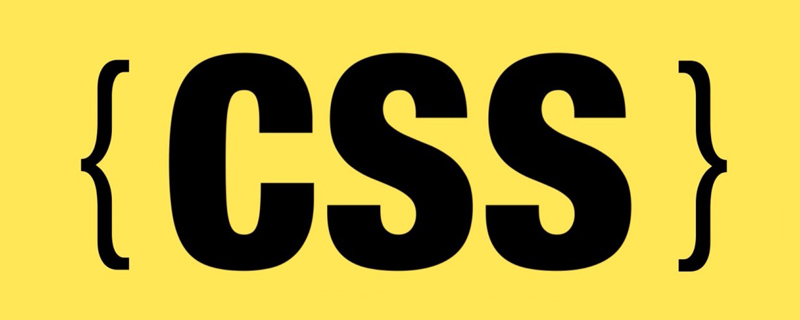Pseudo classes and pseudo elements are independent of the document structure. The way they obtain elements is not based on basic element characteristics such as id, class, attribute, but on elements (pseudo-classes) in a special state, Or special content in the element (pseudo-element). The differences are summarized below:
CSS伪类 (Pseudo-classes):用于向某些选择器添加特殊的效果,即在元素当前静态样式的基础上添加特殊效果(一般都是动态效果),所以一个元素达到一个特定状态时,它可能得到一个伪类的样式;当状态改变时,它又会失去这个样式。
| Properties | Description |
| :active | Add styles to activated elements |
| :focus | Add styles to elements with keyboard input focus |
| :hover | Add a style to the element when the mouse is hovering over it |
| ##:link | Add styles to links that have not been visited|
| :visited | Add styles to links that have been visited Visited links add styles|
| :first-child | Add styles to the first child element of the element|
| :lang | Add styles to elements with the specified lang attribute
css pseudo Elements (Pseudo-elements): Used to set special effects to certain selectors, which is to set and operate specific content in the elements. The operation level is deeper than pseudo-classes, so the dynamics are higher than pseudo-classes. Difference.
w3c<a href="http://www.php.cn/wiki/1550.html" target="_blank"></a> Definition of both:
CSS
Pseudo classes are used to add special effects to certain selectors.CSS
Pseudo elements are used to add special effects to certain selectors.
:first-child and the pseudo-element :first-letter are used for comparison.
p>i:first-child {color: red}<p>
<i>first</i>
<i>second</i></p> //Pseudo-class :first-child Add style to the first child elementIf we do not use pseudo-classes and want to achieve the above effect, we can do this:
.first-child {color: red}<p>
<i>first</i>
<i>second</i></p>That is, we add a class to the first child element and then define the style of this class. Then let’s take a look at the pseudo-element:
p::first-letter {color: red}<p>I am stephen lee.</p>//Pseudo-element ::first-letter Add style to the first letter Then if we don’t use pseudo-elements, we need to achieve What should be done to achieve the above effect?
.first-letter {color: red}<p><span>I</span> am stephen lee.</p>That is, we add a span to the first letter, and then add a style to span. The difference between the two has come out. That is:
SummaryThe reason why pseudo-elements and pseudo-classes are so easy to confuse is because their effects are similar and their writing methods are similar, but in factThe effect of pseudo-class can be achieved by adding an actual class, while the effect of pseudo-element needs to be achieved by adding an actual element, which is why they are a Called a pseudo-class, a reason called a pseudo-element.
css3 In order to distinguish between the two, it has been clearly specified that pseudo-classes are represented by one colon, while pseudo-elements are represented by two colons.
:Pseudo-classes ::Pseudo-elementsBut due to compatibility issues, most of them still use a single colon. However, regardless of compatibility issues, we should try our best to develop good habits when writing and distinguish between the two.
The above is the detailed content of The difference between CSS pseudo-classes and pseudo-elements. For more information, please follow other related articles on the PHP Chinese website!
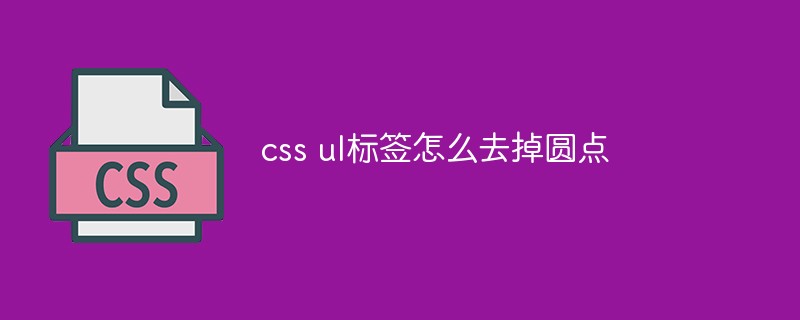 css ul标签怎么去掉圆点Apr 25, 2022 pm 05:55 PM
css ul标签怎么去掉圆点Apr 25, 2022 pm 05:55 PM在css中,可用list-style-type属性来去掉ul的圆点标记,语法为“ul{list-style-type:none}”;list-style-type属性可设置列表项标记的类型,当值为“none”可不定义标记,也可去除已有标记。
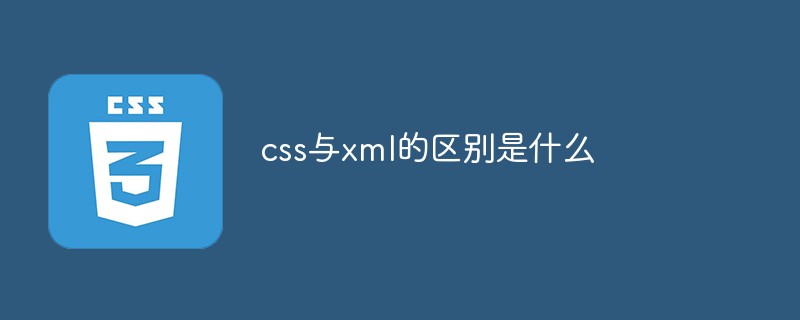 css与xml的区别是什么Apr 24, 2022 am 11:21 AM
css与xml的区别是什么Apr 24, 2022 am 11:21 AM区别是:css是层叠样式表单,是将样式信息与网页内容分离的一种标记语言,主要用来设计网页的样式,还可以对网页各元素进行格式化;xml是可扩展标记语言,是一种数据存储语言,用于使用简单的标记描述数据,将文档分成许多部件并对这些部件加以标识。
 css3怎么实现鼠标隐藏效果Apr 27, 2022 pm 05:20 PM
css3怎么实现鼠标隐藏效果Apr 27, 2022 pm 05:20 PM在css中,可以利用cursor属性实现鼠标隐藏效果,该属性用于定义鼠标指针放在一个元素边界范围内时所用的光标形状,当属性值设置为none时,就可以实现鼠标隐藏效果,语法为“元素{cursor:none}”。
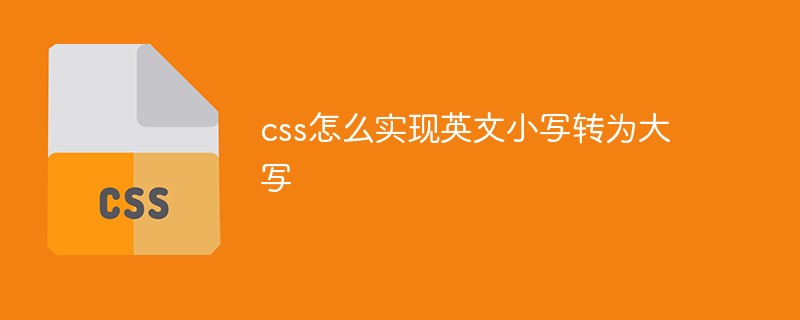 css怎么实现英文小写转为大写Apr 25, 2022 pm 06:35 PM
css怎么实现英文小写转为大写Apr 25, 2022 pm 06:35 PM转换方法:1、给英文元素添加“text-transform: uppercase;”样式,可将所有的英文字母都变成大写;2、给英文元素添加“text-transform:capitalize;”样式,可将英文文本中每个单词的首字母变为大写。
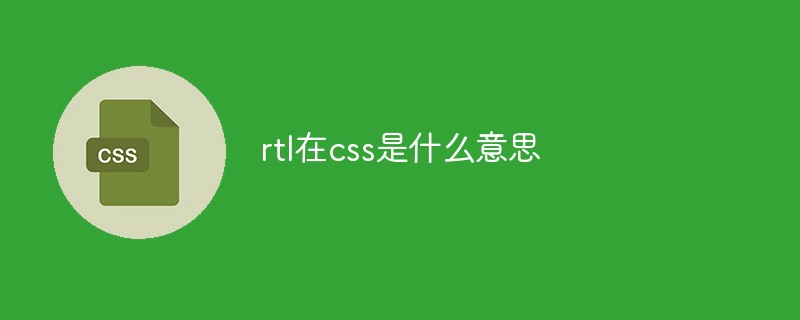 rtl在css是什么意思Apr 24, 2022 am 11:07 AM
rtl在css是什么意思Apr 24, 2022 am 11:07 AM在css中,rtl是“right-to-left”的缩写,是从右往左的意思,指的是内联内容从右往左依次排布,是direction属性的一个属性值;该属性规定了文本的方向和书写方向,语法为“元素{direction:rtl}”。
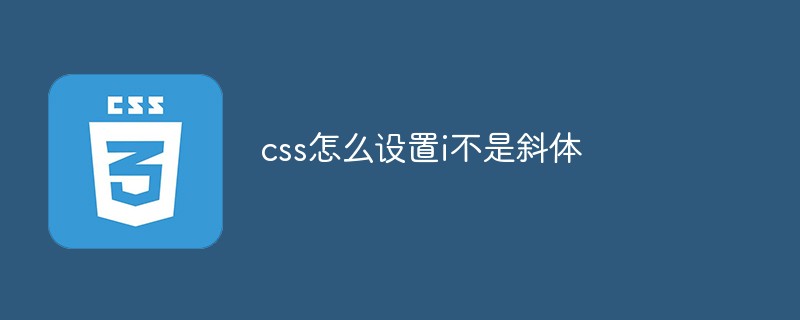 css怎么设置i不是斜体Apr 20, 2022 am 10:36 AM
css怎么设置i不是斜体Apr 20, 2022 am 10:36 AM在css中,可以利用“font-style”属性设置i元素不是斜体样式,该属性用于指定文本的字体样式,当属性值设置为“normal”时,会显示元素的标准字体样式,语法为“i元素{font-style:normal}”。
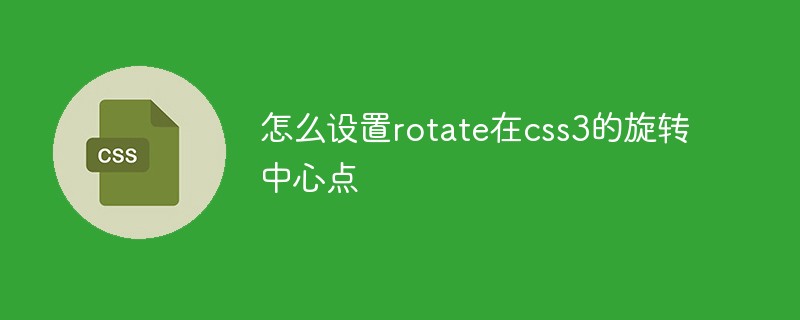 怎么设置rotate在css3的旋转中心点Apr 24, 2022 am 10:50 AM
怎么设置rotate在css3的旋转中心点Apr 24, 2022 am 10:50 AM在css3中,可以用“transform-origin”属性设置rotate的旋转中心点,该属性可更改转换元素的位置,第一个参数设置x轴的旋转位置,第二个参数设置y轴旋转位置,语法为“transform-origin:x轴位置 y轴位置”。


Hot AI Tools

Undresser.AI Undress
AI-powered app for creating realistic nude photos

AI Clothes Remover
Online AI tool for removing clothes from photos.

Undress AI Tool
Undress images for free

Clothoff.io
AI clothes remover

AI Hentai Generator
Generate AI Hentai for free.

Hot Article

Hot Tools

Zend Studio 13.0.1
Powerful PHP integrated development environment

Notepad++7.3.1
Easy-to-use and free code editor

Atom editor mac version download
The most popular open source editor

SAP NetWeaver Server Adapter for Eclipse
Integrate Eclipse with SAP NetWeaver application server.

MinGW - Minimalist GNU for Windows
This project is in the process of being migrated to osdn.net/projects/mingw, you can continue to follow us there. MinGW: A native Windows port of the GNU Compiler Collection (GCC), freely distributable import libraries and header files for building native Windows applications; includes extensions to the MSVC runtime to support C99 functionality. All MinGW software can run on 64-bit Windows platforms.





